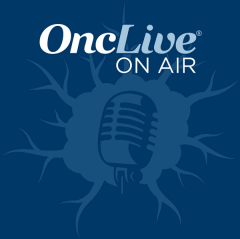
Dr. Landgren on the Clinical Impact of KRd-D in Multiple Myeloma

Ola Landgren, MD, PhD, discusses the clinical impact of the 4-drug combination of carfilzomib, lenalidomide, dexamethasone, and daratumumab in patients with multiple myeloma.
Episodes in this series

Ola Landgren, MD, PhD, the inaugural leader of the Experimental Therapeutics Program at Sylvester Comprehensive Cancer Center, Miami Health System, discusses the clinical impact of the 4-drug combination of carfilzomib (Kyprolis), lenalidomide (Revlimid), dexamethasone, and daratumumab (Darzalex; KRd-D) in patients with multiple myeloma.
Compared with other available options, such as bone marrow transplant, which is associated with toxicities and sustained peripheral neuropathy, a once weekly infusion of the quadruplet is a positive prospective treatment, Landgren says. KRd-D is pushing the field forward and offers a new option for this patient population, Landgren concludes.








































